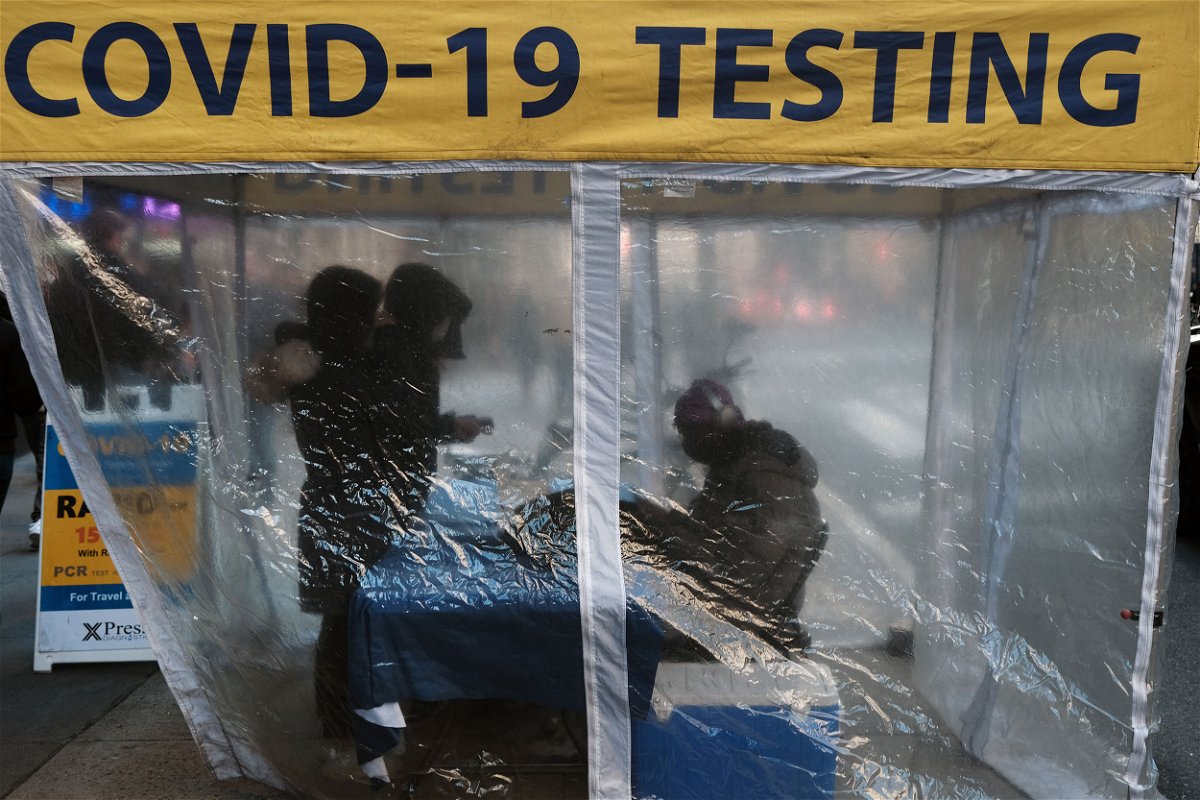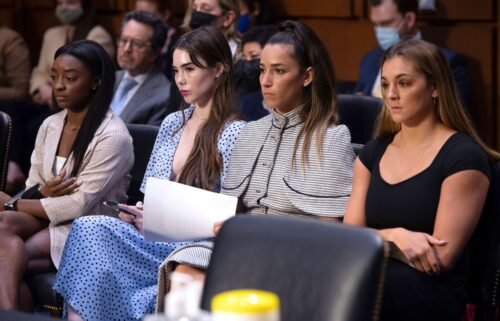Biden administration renews Covid-19 public health emergency

The Biden administration on Wednesday again renewed the Covid-19 public health emergency. Pictured is a Covid-19 testing site in December
By Betsy Klein and Tami Luhby, CNN
The Biden administration on Wednesday again renewed the Covid-19 public health emergency, a provision that gives the administration authorities to respond to the pandemic as cases are again on the rise.
US Health and Human Services Secretary Xavier Becerra renewed the declaration on its expiration date — an expected step because officials have said they will provide 60 days’ notice if they do not plan to renew the emergency, and had not done so.
Becerra renewed the Covid-19 public health emergency because “there’s still a lot of Covid out there, and the public health emergency and his determination gives us tools to fight this,” White House Covid-19 Response Coordinator Dr. Ashish Jha told CNN’s Alisyn Camerota.
Jha stressed that the highly contagious XBB.1.5 variant was just one of the variants that prompted the decision, but it wasn’t the only reason.
“The secretary made a decision that the tools of the public health emergency are still necessary to continue to fight this virus,” Jha said.
The public health emergency gives the federal government wide-ranging authorities over a number of Covid-19-related areas, including data tracking and allowing pharmacists, rather than physicians, to administer the Covid-19 vaccine, among other provisions.
However, the federal government spending law enacted last month decoupled several major relief measures from the public health emergency.
The package is phasing out the requirement that prevents states from disenrolling Medicaid recipients as long as the public health emergency is in effect in exchange for an enhanced federal match. This continuous coverage measure was enacted as part of a Covid-19 relief package passed in March 2020 and has led to a record 90 million enrollees in Medicaid, many of whom may no longer meet the income requirements to qualify.
Now, states can begin processing Medicaid redeterminations as of April 1, regardless of when the public health emergency ends. Estimates vary on how many people would lose their Medicaid benefits, though they range as high as 19 million. Many folks, however, could qualify for other coverage.
Also, the federal government has been providing enhanced food stamp benefits to millions of Americans during the public health emergency. Those beefed up monthly payments will end after February.
And as part of the spending package, Congress extended for two years the telehealth flexibilities that allowed more Medicare enrollees to access virtual care.
Covid-19 cases on the rise again
Wednesday’s renewal comes amid the emergence of the Omicron XBB.1.5 subvariant. The latest data from the US Centers for Disease Control and Prevention show that the seven-day average of weekly new Covid-19 cases is up 16.2% compared with the previous week.
Becerra said in the declaration that he was renewing the emergency “as a result of the continued consequences of the Coronavirus Disease 2019 (COVID-19) pandemic, on this date and after consultation with public health officials as necessary.”
The public health emergency was first issued by Trump administration HHS Secretary Alex Azar in January 2020 and was subsequently renewed 11 times.
While conversations about when to end the public health emergency are ongoing and an announcement of a 60-day wind-down could come at any time — it does not need to be the end of the 90-day extension and could come before that — an end date has not yet been set.
The Centers for Medicaid and Medicare Services is in close contact with states and other key stakeholders about how to protect Medicare and Medicaid beneficiaries once that decision is made.
“The COVID-19 Public Health Emergency remains in effect, and as HHS committed to earlier, we will provide a 60-day notice to states before any possible termination or expiration. Additional information about public health emergency declarations, including frequently asked questions, can be found on our website,” an HHS spokesperson said in a statement to CNN.
And reports of a set April end date are “untrue,” according to an administration official, as decision-making continues at HHS.
“The decision to terminate the Covid (public health emergency) will be made by the HHS secretary based on the best available data and science. Any suggestion that a specific end date has been established is untrue,” the official said.
The-CNN-Wire
™ & © 2023 Cable News Network, Inc., a Warner Bros. Discovery Company. All rights reserved.



